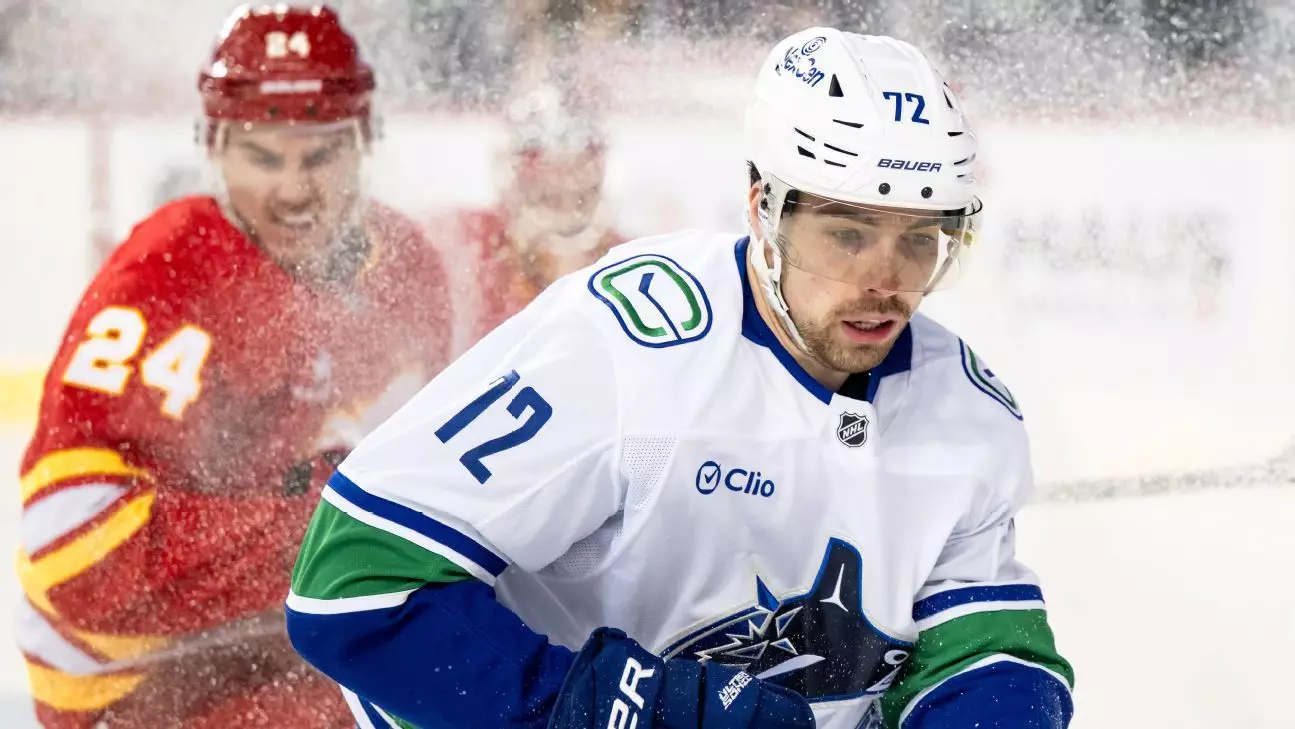Filip Chytil’s journey with the Vancouver Canucks has faced tumultuous waves, especially following his recent concussion that has kept him sidelined since mid-March. Coach Rick Tocchet recently shared the concerning news about Chytil’s recovery, stating that he has experienced both encouraging and discouraging days, raising doubts about his return this season. The fact that Chytil, at just 25, is already grappling with potential long-term effects from multiple concussions is alarming not just for him, but it raises significant questions about player safety in sports.
When players like Chytil suffer injuries, especially severe ones like concussions, it underscores the fragility of an athlete’s career. The uncertainty surrounding his availability is more than just a loss for the team; it symbolizes the risks athletes face in high-contact sports, emphasizing the need for better protective measures and protocols. As Tocchet mentioned the variable nature of Chytil’s recovery—that he has good days and bad—there is an undercurrent of caution that becomes all too evident; it’s a reminder of the significant consequences that can arise from head injuries.
The Impact on the Canucks’ Season
The Vancouver Canucks find themselves at a critical juncture, desperately vying for a playoff berth in an intensely competitive Western Conference. With Chytil’s presence now in jeopardy, the team’s depth has been tested even further. The reality is, injuries have not just plagued Chytil; other key players, such as Elias Pettersson, Quinn Hughes, and Brock Boeser, have also faced their own battles with health this season. Coach Tocchet’s observations about the evolving culture within the team reflect a shift that is not only tactical but emotional—a response to adversity that has become part of their identity.
Despite the mounting pressure, goaltender Thatcher Demko expressed a sense of pride in the team’s resolve. This camaraderie, while commendable, does beg the question—can a team thrive amid such chaos? The odds may not favor the Canucks, sitting at a record of 34-27-13 and competing against formidable rivals like the Minnesota Wild and St. Louis Blues, but their steadfast commitment to showing up each night demonstrates an indomitable spirit that can often propel teams through challenging times.
Concussion Protocols: A Broader Discussion
Chytil’s struggles bring to light crucial discussions around concussion protocols and player health. The NHL, like many professional sports leagues, has faced scrutiny over its handling of player safety and concussion-related injuries. Each concussion puts an athlete’s future at risk, both in terms of their physical health and career longevity. Despite evolving protocols aimed at safeguarding players, instances of recurrence, particularly in younger athletes, can challenge the effectiveness of these measures. The fact that a young player like Chytil could potentially miss significant time, or even his career, merits a critical examination of how teams handle concussion cases.
It is time for the NCAA, NHL, and other sports organizations to capitalize on the lessons learned from concussion management and invest in advanced technology and research for prevention. Enhanced training programs, better equipment, and rigorous medical evaluations should be the norm rather than the exception. Preserving the health of athletes must remain paramount for all stakeholders involved, given that the excitement of the game should not overshadow the athlete’s well-being.
The Psychological Toll on Players
The psychological ramifications of repeated concussions cannot be ignored. The burden of recovery, filled with uncertainty, can weigh heavily on a player’s mental health. Chytil’s situation serves as a poignant reminder that behind the athlete’s public persona lies a shared human experience of fear, doubt, and the drive to return to the ice. The emotional resilience required to push through the rehabilitation process is immense and should be supported by teams beyond just physical recovery.
As the Canucks navigate through this precarious season, the story of Chytil reflects a broader narrative—the struggles of professional athletes with their health and the relentless pursuit of a dream often juxtaposed against the urgency of their physical vulnerabilities. Balancing competitive ambitions with the reality of human fragility is perhaps one of the greatest challenges that modern professional sports must contend with.


Leave a Reply